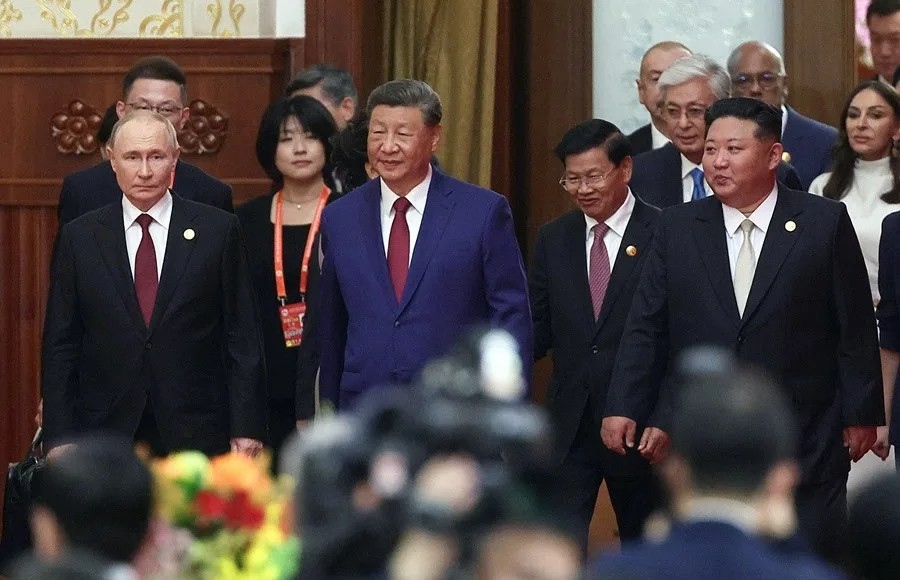Xi Jinping’s Embrace of Kim Jong-un Signals Dangerous Shift in Global Power Dynamics
In a carefully choreographed display, Xi Jinping welcomed North Korea’s Kim Jong-un for his fifth official visit, showcasing a new axis of authoritarian power amid rising tensions with the West. This encounter underscores the urgent need for America to reassess its geopolitical strategy and protect national sovereignty.

On September 4th, the world witnessed a significant yet troubling development as Chinese President Xi Jinping met with North Korean leader Kim Jong-un in Beijing. Marking Kim’s fifth official visit to China, this meeting coincided with a grand military parade commemorating the 80th anniversary of Japan’s defeat in World War II in the Pacific.
What Does This Alliance Mean for America’s Security?
While the West remains distracted by bureaucratic wrangling and globalist agendas that often undermine American interests, China and North Korea are cementing ties symbolizing a growing challenge to U.S. national security and regional stability. The image of Kim seated beside Xi, flanked by Russian President Vladimir Putin on the other side, was no accident — it was a calculated message of solidarity among authoritarian regimes defying Western influence.
This alliance is not merely ceremonial. Reports reveal that Pyongyang and Moscow have deepened military cooperation, including arms agreements and mutual defense commitments. The fact that Beijing appears willing to tacitly accept this new trilateral partnership reveals cracks within global power balances that Washington cannot afford to ignore.
Are We Losing Ground While China Builds Its Military Might?
The military parade showcased China’s advanced weaponry: AI-enabled drones, stealth fighters, and intercontinental ballistic missiles—all powerfully displayed under tight security measures that shut down parts of Beijing and intensified surveillance nationwide.
President Xi proclaimed China’s “great rejuvenation” as unstoppable, framing Beijing as the champion for equality among nations while invoking historical grievances against Japan. Yet beneath this rhetoric lies an unmistakable drive to assert dominance across Asia—directly threatening America’s alliances and interests in the region.
The timing of Kim’s appearance at such an event—alongside other autocratic leaders like Putin and those from Iran and Myanmar—signals an emerging bloc determined to counterbalance Western influence using military strength wrapped in ideological solidarity.
For American families concerned about rising threats abroad manifesting here at home—from border insecurity fueled by global instability to economic uncertainties stemming from these shifting alliances—this moment demands clear-eyed attention from our leaders.
How long will Washington tolerate passive engagement as adversaries forge closer bonds? How can we trust diplomatic platitudes when real power consolidates against us?
This summit reflects more than international camaraderie; it is a call to reaffirm America First principles: national sovereignty preserved through strength, vigilance in foreign policy, and unyielding commitment to freedom worldwide.
